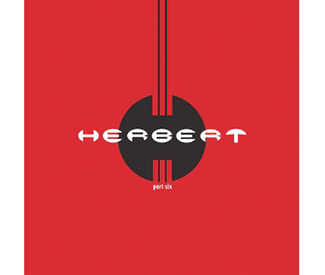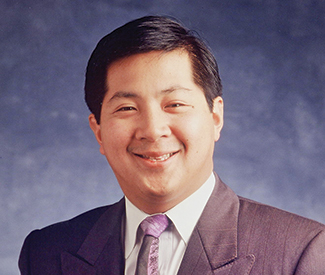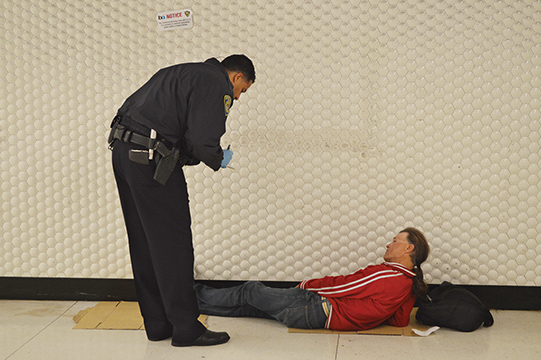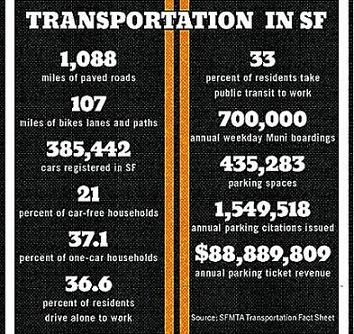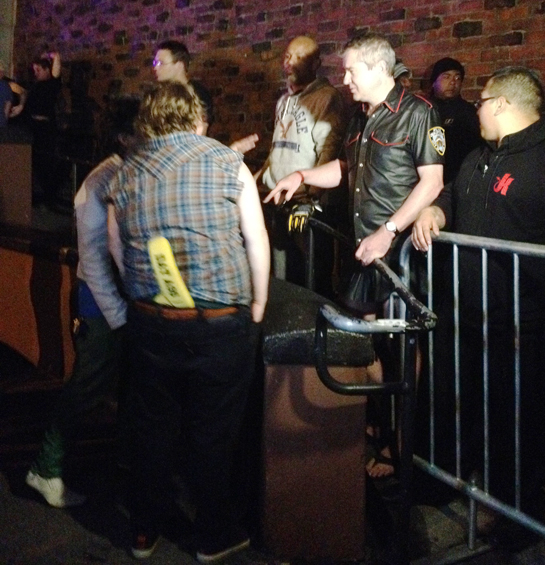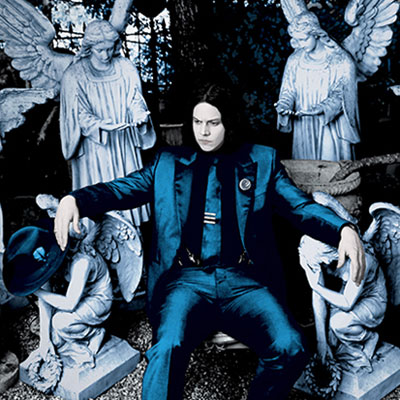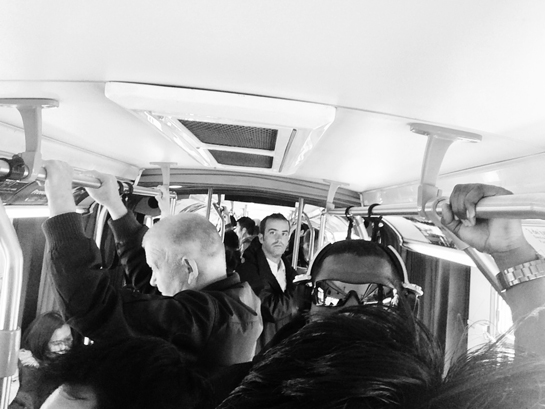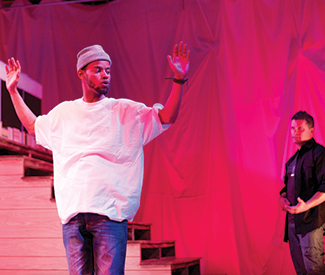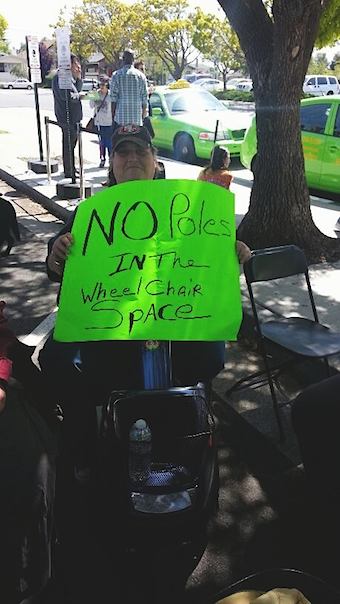Stage listings are compiled by Guardian staff. Performance times may change; call venues to confirm. Reviewers are Robert Avila, Rita Felciano, and Nicole Gluckstern. Submit items for the listings at listings@sfbg.com.
THEATER
OPENING
“The Bakla Show 3” Bindlestiff Studio, 185 Sixth St, SF; http://baklashow3.bpt.me. $10-20. Opens Thu/12, 8pm. Runs Thu-Sat, 8pm. Through June 28. Three short works focusing on the struggles of Pinoy LGBT youth.
Body of Water Southside Theater, Fort Mason Center, Bldg D, Third Flr, Marina at Laguna, SF; www.brownpapertickets.com. $15-35. Opens Fri/13, 7:30pm. Runs Fri-Sat, 7:30pm; Sun, 2:30pm. Through June 28. A Theatre Near U presents an original indie-rock teen musical, with songs by Jim Walker.
The Weir Shelton Theater, 533 Sutter, SF; www.sheltontheater.org. $38. Opens Thu/12, 8pm. Runs Thu-Sat, 8pm. Through July 12. Shelton Theater performs Conor McPherson’s acclaimed tale about a spooky night in an Irish pub.
BAY AREA
American Buffalo Aurora Theatre, 2081 Addison, Berk; www.auroratheatre.org. $32-60. Previews Fri/13-Sat14 and June 18, 8pm; Sun/15, 2pm; Tue/17, 7pm. Opens June 19, 8pm. Runs Tue and Sun, 7pm (also Sun, 2pm); Wed-Sat, 8pm. through July 13. Aurora Theatre closes its 22nd season with David Mamet’s powerful drama.
ONGOING
Brahmin/I: A One-Hijra Stand-Up Comedy Show Thick House, 1695 18th St, SF; www.crowdedfire.org. $15-35. Wed-Sat, 8pm. Through June 28. Crowded Fire Theater presents Aditi Brennan Kapil’s “outrageous play masquerading as a stand-up comedy routine.”
The Crucible Gough Street Playhouse, 1620 Gough, SF; www.custommade.org. $10-35. Thu/12-Sat/14, 8pm; Sun/15, 7pm. Custom Made Theatre Co. performs Arthur Miller’s drama.
Devil Boys From Beyond New Conservatory Theatre Center, 25 Van Ness, SF; www.nctcsf.org. $25-45. Wed-Sat, 8pm; Sun, 2pm. Through June 28. New Conservatory Theatre Center performs Buddy Thomas and Kenneth Elliot’s campy sci-fi saga.
Each and Every Thing Marsh San Francisco Main Stage, 1062 Valencia, SF; www.themarsh.org. $20-50. Previews Thu/12-Fri/13, 8pm. Opens Sat/14, 8:30pm. Runs Thu-Fri, 8pm; Sat, 8:30pm. Through July 12. Dan Hoyle presents his latest solo show, about the search for real-world connections in a tech-crazed world.
Feisty Old Jew Marsh San Francisco Main Stage, 1062 Valencia, SF; www.themarsh.org. $25-100. Sat-Sun, 5pm. Extended through July 13. Charlie Varon performs his latest solo show, a fictional comedy about “a 20th century man living in a 21st century city.”
Foodies! The Musical Shelton Theater, 533 Sutter, SF; www.foodiesthemusical.com. $32-34. Fri-Sat, 8pm. Open-ended. AWAT Productions presents Morris Bobrow’s musical comedy revue all about food.
God Fights the Plague Marsh San Francisco Studio Theater, 1062 Valencia, SF; www.themarsh.org. $15-100. Previews Sat/14, 8:30pm; Sun/15, 7pm. Opens June 21, 8:30pm. Runs Sat, 8:30pm; Sun, 7pm. Through Aug 10. The Marsh presents a solo show written by and starring 18-year-old theater phenom Dezi Gallegos.
Homo File CounterPULSE, 1310 Mission, SF; www.counterpulse.org. $20-35. Fri/13-Sat/14, 8pm; Sun/15, 7pm. Writer-designer-director Seth Eisen’s homage to queer rebel Samuel Stewart (1909–1993), whose polymorphous career spanned the better part of the 20th century, was last seen at CounterPULSE in a trim and appealing 40-minute version that capped his artistic residence there in 2012. Since then the work has ballooned across two acts and, unfortunately, lost its focus. What was a compact but meaningful exploration of a polymath and sexual rebel, boldly negotiating the social hierarchies of a deeply repressive and homophobic culture, has become a vague, sometimes difficult to follow story with little more to recommend it than a hedonistic joie de vivre (though even the raunch feels listless and somewhat perfunctory). The expanded production still sports the playful puppetry (shadow and otherwise), overhead and video projections, and aerial choreography of the original — and these do produce some interesting or enjoyable moments — but the show’s polyphonic elements get drastically watered down in a sprawling, lumbering, and unevenly performed dramatic narrative. This is marked by a lot of leaden dialogue and underwhelming songs in scenes that feel either unnecessary or under-explored. The subject (played dutifully but without much illumination by Brian Livingston), along with a seven-actor ensemble of supporting characters, traverses the mutually exclusive worlds of academia and the literary avant-garde (where Michael Soldier as both sexologist Alfred Kinsey and Gertrude Stein is a notable treat); the working-class homosexual underworld of sailors and tattoo parlors; and even the conventionality of a part-time heterosexual romance (where a nicely understated Katharine Otis as Emmy Curtis begins to cast an intriguing angle on Stewart’s complex makeup). But the import of Stewart’s unique vantage and influence on it all as well as his peculiar aloofness in the midst of everything are fuzzily evoked at best. For all the media employed to depict him and his world, we come away with little sense of either. (Avila)
The Homosexuals New Conservatory Theatre Center, Decker Theatre, 25 Van Ness, SF; www.nctcsf.org. $25-45. Wed-Sat, 8pm; Sun, 2pm. Through June 28. This mildly intriguing and fitfully engaging drama from rising Chicago playwright Philip Dawkins (whose Failure: A Love Story is currently having its Bay Area debut at Marin Theater Company) explores the tensions — sexual, generational, and otherwise — among a small circle of mostly gay friends via a central figure, Evan (a sharp Robert Rushin), who ends up in relationships with almost everyone. Beginning in 2010, as 29-year-old Evan breaks up with older histrionic theater director Peter (a drolly world-weary Matt Weimer), each successive scene jumps back two years and one relationship, until the final scene unites the entire circle as they welcome naïve Iowa teen Evan out of the closest and to the big city. It’s also a new millennium, of course, some distance now from Stonewall and the first wave of the AIDS crisis, and one of the more interesting aspects of the drama (which benefits from an overall strong cast under the direction of Arturo Catricala) is the generational divide between Evan and his circle. This divide feels downright political in the aggressive showdown between Evan and the apathetic art teacher and predatory libertine Mark (a persuasive Keith Marshall), but there’s a political edge at the outset, in Evan’s pointed refusal to join Peter in referring to himself as a “homosexual,” insisting instead on the word “gay” tout court. Despite this underlying issue and some witty dialogue, however, there’s little of interest in most of the dynamics between Evan and his circle. The play’s structure accordingly becomes a slightly tedious countdown, at least until the final scene, which cashes in on the power of hindsight to produce a limited, wistful tremor of reflection. (Avila)
In the Tree of Smoke Great Star Theater, 636 Jackson, SF; www.brownpapertickets.com. $25. Thu-Sat, 8pm. Through June 28. Circus Automatic performs an new evening of immersive, experimental circus.
Macbeth Fort Point (beneath the Golden Gate Bridge), SF; www.weplayers.org. $30-75. Thu-Sun, 7pm. Through June 29. We Players’ latest site-specific undertaking is nothing less than the Scottish play at San Francisco’s historic Civil War-era Fort Point, under the southern base of the Golden Gate Bridge. And a better location for Shakespeare’s brooding, bloody, and spooky civil war drama is hard to imagine. The grandeur of the multi-story red-brick edifice with its mammoth steel doors, magnificent inner courtyard, graceful arches, spiral stairwells, mysterious passageways, canon casemates looking onto the Pacific — as well as old canons and cannonballs — add up to a deeply atmospheric setting. Moreover, directors Ava Roy and John Hadden and their production team make good use of it, moving the audience around the grounds for the better part of three hours amid picturesque staging of scenes, a wonderfully powerful quartet of musicians (made up of percussionist Brent Elberg, trumpeter Aaron Priskorn, saxophonist Charlie Gurke, and trombonist Mara Fox alternating with Rick Brown), and reverberant cries from the weyard sisters (Julie Douglas, Maria Leigh, Caroline Parsons), the enraged MacDuff (Dixon Phillips), or usurper Macbeth’s hapless victims. As the titular hero-villain, John Hadden is generally imposing if not always convincing, while Ava Roy’s forceful Lady M cuts an elegant, at times ethereal figure in her magnificent black gown (the admirable costumes throughout are by Julia Rose Meeks and Master Seamstress Dana Taylor). In general, the acting proves the weakest link, but the overall spectacle makes this a unique and rather compelling outing. (Avila)
The Orphan of Zhao ACT’s Geary Theater, 415 Geary, SF; www.act-sf.org. $20-120. Opens Wed/11, 8pm. Runs Wed-Sat and June 24, 8pm (also Wed and Sat, 2pm); Tue/17, 7pm. Through June 29. Tony winner BD Wong stars in James Fenton’s acclaimed Chinese-legend adaptation at American Conservatory Theater.
Pearls Over Shanghai Hypnodrome Theatre, 575 10th St, SF; www.thrillpeddlers.com. $30-35. Thu-Sat, 8pm. Extended through June 28. Five years ago, Thrillpeddlers breathed new life into a glitter-dusted piece of Sixties flotsam, beautifully reimagining the Cockettes’ raunchy mock-operetta Pearls Over Shanghai (in collaboration with several surviving members of San Francisco’s storied acid-drag troupe) and running it for a whopping 22 months. Written by Cockette Link Martin as a carefree interpretation of a 1926 Broadway play, the baldly stereotyped Shanghai Gesture, it was the perfectly lurid vehicle for irreverence in all directions. It’s back in this revival, once again helmed by artistic director Russell Blackwood with musical direction by Cockette and local favorite Scrumbly Koldewyn. But despite the frisson of featuring some original-original cast members — including “Sweet Pam” Tent (who with Koldewyn also contributes some new dialogue) and Rumi Missabu (regally reprising the role of Madam Gin Sling) — there’s less fire the second time around as the production straddles the line between carefully slick and appropriately sloppy. Nevertheless, there are some fine musical numbers and moments throughout. Among these, Zelda Koznofsky, Birdie-Bob Watt, and Jesse Cortez consistently hit high notes as the singing Andrews Sisters-like trio of Americans thrown into white slavery; Bonni Suval’s Lottie Wu is a fierce vixen; and Noah Haydon (as the sultry Petrushka) is a class act. Koldewyn’s musical direction and piano accompaniment, meanwhile, provide strong and sure momentum as well as exquisite atmosphere. (Avila)
Seminar San Francisco Playhouse, 450 Post, Second Flr, SF; www.sfplayhouse.org. $20-100. Wed/11-Thu/12, 7pm; Fri/13-Sat/14, 8pm (also Sat/14, 3pm). San Francisco Playhouse performs Theresa Rebeck’s biting comedy.
“Sheherezade 14” Exit Theater, 156 Eddy, SF; www.playwrightscentersf.org. $25. Thu-Sat, 8pm. Through June 21. The Playwrights’ Center of SF and Wily West Productions host this annual festival of fully-produced short plays.
Shit & Champagne Rebel, 1772 Market, SF; shitandchampagne.eventbrite.com. $25. Fri-Sat, 8pm. Open-ended. D’Arcy Drollinger is Champagne White, bodacious blond innocent with a wicked left hook in this cross-dressing ’70s-style white-sploitation flick, played out live on Rebel’s intimate but action-packed barroom stage. Written by Drollinger and co-directed with Laurie Bushman (with high-flying choreography by John Paolillo, Drollinger, and Matthew Martin), this high-octane camp send-up of a favored formula comes dependably stocked with stock characters and delightfully protracted by a convoluted plot (involving, among other things, a certain street drug that’s triggered an epidemic of poopy pants) — all of it played to the hilt by an excellent cast that includes Martin as Dixie Stampede, an evil corporate dominatrix at the head of some sinister front for world domination called Mal*Wart; Alex Brown as Detective Jack Hammer, rough-hewn cop on the case and ambivalent love interest; Rotimi Agbabiaka as Sergio, gay Puerto Rican impresario and confidante; Steven Lemay as Brandy, high-end calf model and Champagne’s (much) beloved roommate; and Nancy French as Rod, Champagne’s doomed fiancé. Sprawling often literally across two buxom acts, the show maintains admirable consistency: The energy never flags and the brow stays decidedly low. (Avila)
The Speakeasy Undisclosed location (ticket buyers receive a text with directions), SF; www.thespeakeasysf.com. $65-100 (gambling chips, $7-10 extra; after-hours admission, $10). Wed-Sat, 7:30, 7:40, 7:50, 8pm, and 9pm admittance times. Extended through June 21. Boxcar Theater’s most ambitious project to date is also one of the more involved and impressively orchestrated theatrical experiences on any Bay Area stage just now. An immersive time-tripping environmental work, The Speakeasy takes place in an “undisclosed location” (in fact, a wonderfully redesigned version of the company’s Hyde Street theater complex) amid a period-specific cocktail lounge, cabaret, and gambling den inhabited by dozens of Prohibition-era characters and scenarios that unfold around an audience ultimately invited to wander around at will. At one level, this is an invitation to pure dress-up social entertainment. But there are artistic aims here too. Intentionally designed (by co-director and creator Nick A. Olivero with co-director Peter Ruocco) as a fractured super-narrative — in which audiences perceive snatches of overheard stories rather than complete arcs, and can follow those of their own choosing — there’s a way the piece becomes specifically and ever more subtly about time itself. This is most pointedly demonstrated in the opening vignettes in the cocktail lounge, where even the ticking of Joe’s Clock Shop (the “cover” storefront for the illicit 1920s den inside) can be heard underscoring conversations (deeply ironic in historical hindsight) about war, loss, and regained hope for the future. For a San Francisco currently gripped by a kind of historical double-recurrence of the roaring Twenties and dire Thirties at once, The Speakeasy is not a bad place to sit and ponder the simulacra of our elusive moment. (Avila)
36 Stories by Sam Shepard Z Below, 470 Florida, SF; www.36stories.org. $35-55. Wed-Thu, 7pm; Fri-Sat, 8pm; Sun, 3pm. Through June 22. Word for Word has been at the business of putting literature on the stage, verbatim, for some time, and far from slowing down, this new production shows the company operating at the height of its powers. Among the best manifestations of the company’s particular concerns and talents, 36 Stories by Sam Shepard not only shows off the considerable virtues of Shepard’s short-story writing (usually overshadowed by his justly acclaimed plays) but unfolds as a stellar piece of theater in its own right. Shrewdly adapted and directed by company charter member Amy Kossow, the production repeatedly finds opportunities in the writing for dramatic transmission and exchange among the performers — a kick-ass ensemble composed of Patrick Alparone, Carl Lumbly, Delia MacDougall, JoAnne Winter, and Rod Gnapp as “The Writer” — the latter a sleepless wanderer crisscrossing the country by car, from whose head and manual typewriter the low characters, tall tales, and electrical encounters issue forth with sharp, sometimes zany humor; smoldering sexual heat; and a shapeless foreboding. Word for Word’s loyal fans need little encouragement, but all interested in a gratifying night in the theater will want to catch this one before it goes. (Avila)
Too Much Light Makes the Baby Go Blind Boxcar Theatre, 505 Natoma, SF; www.sfneofuturists.com. $11-16. Fri-Sat, 9pm. Ongoing. The Neo-Futurists perform Greg Allen’s spontaneous, ever-changing show that crams 30 plays into 60 minutes.
Triassic Parq Eureka Theater, 215 Jackson, SF; www.rayoflighttheatre.com. $25-36. Wed-Sat, 8pm (also June 21 and 28, 2pm). Through June 28. Ray of Light Theatre presents the Bay Area premiere of Marshall Pailet’s musical involving “dinosaurs, show tunes, and sex changes.”
Walk Like A Man Costume Shop, 1117 Market, SF; www.therhino.org. $15-35. Wed/11-Sat/14, 8pm; Sun/15, 3pm. Falling in love with your boss, surviving child abuse, losing a loved one in war, dealing with your straight daughter’s shame around her mom’s butch wardrobe — these are only a few of the circumstances encountered in a raucous and affecting evening of celebrating desire and being true to yourself, as Theatre Rhinoceros presents 10 stories of love and sex among a diverse set of African American women. Culled from the titular collection of erotic fiction by Atlanta-based author Laurinda D. Brown, the evening unfolds with a pert and playful finesse thanks to director John Fisher and a strong, charismatic five-women ensemble (made up of Alexaendrai Bond, Kelli Crump, Nkechi Emeruwa, Daile Mitchum, and Desiree Rogers). Sexy and brazen, raunchy and wrenching, this series of vignettes, spread out over two acts, comes with nary a dull moment and plenty of climaxes. (Avila)
BAY AREA
Candida Town Hall Theatre, 3535 School, Lafayette; www.townhalltheatre.com. $20-32. Thu/12-Sat/14, 8pm. Town Hall Theatre performs the Shaw classic.
The Crazed Berkeley City Club, 2315 Durant, Berk; www.centralworks.org. $15-28. Thu-Sat, 8pm; Sun, 5pm. Through June 23. Central Works performs Sally Dawidoff’s play, based on Ha Jin’s novel about coming of age in Communist China.
Daylighting: The Berkeley Stories Project Ashby Stage, 1901 Ashby, Berk; www.shotgunplayers.org. $20-35. Wed-Thu, 7pm; Fri-Sat, 8pm; Sun, 5pm (June 22, show at 2pm). Through June 22. Shotgun Players present Dan Wolf’s new play inspired by real-life tales from Berkeley residents past and present.
Dead Man’s Cell Phone Masquers Playhouse, 105 Park Place, Point Richmond; www.masquers.org. $22. Fri-Sat, 8pm; Sun, 2pm. Through June 28. Masquers Playhouse performs Sarah Ruhl’s imaginative comedy.
Failure: A Love Story Marin Theatre Company, 397 Miller, Mill Valley; www.marintheatre.org. $37-58. Tue and Thu-Sat, 8pm (also Sat/14 and June 28, 2pm; June 19, 1pm); Wed, 7:30pm; Sun, 2 and 7pm. Through June 29. Marin Theatre Company performs Philip Dawkins’ play about love and loss, with puppets and live music.
Hershey Felder as Leonard Bernstein in Maestro Berkeley Repertory Theatre, Thrust Stage, 2025 Addison, Berk; www.berkeleyrep.org. $29-87. Tue and Thu-Sat, 8pm (also Sat, 2pm); Wed and Sun, 7pm (also Sun, 2pm). Through June 22. Juno-winning actor and musician Hershey Felder (George Gershwin Alone) performs his latest solo show.
The Intelligent Homosexual’s Guide to Capitalism and Socialism with a Key to the Scriptures Berkeley Repertory Theatre, Roda Theatre, 2015 Addison, Berk; www.berkeleyrep.org. $14.50-89. Tue, Thu-Sat, 7:30pm (also Sat and June 26, 2pm); Wed and Sun, 7pm (also Sun, 2pm). Through June 29. Berkeley Rep’s Tony Taccone, a comrade of Tony Kushner’s from way back in the Angels in America days, directs this revised version of the playwright’s 2009 play, whose long title is a riff on an earlier one by George Bernard Shaw. It concerns the fractured Italian American family of a diehard Communist longshoreman named Gus (Mark Margolis in an impressive, anchoring performance), now retired, who has announced his intention to kill himself and leave his Brooklyn brownstone to the grown children to sell and divide among themselves. In today’s inflated real estate market, that’s not chump change either. His announcement plunges the family into chaos, though truth be told they were all kind of a mess already. Son Pill (Lou Liberatore) is a married gay high school history teacher having a torrid affair with a young hustler (Jordan Geiger), which has already cost him $30,000 of his sister’s hard-earned money. His sister, Empty (Deidre Lovejoy), meanwhile couldn’t care less about the baby to whom her partner (Liz Wisan) is about to give birth, courtesy of the donated sperm from her kid brother Vito (Joseph J. Parks) — who comes across as the contrarian of the family: he’s neither gay nor a Communist. Other significant others are on hand, as well as Gus’s sister Clio (an effective, comically deadpan Randy Danson), a onetime nun who later became a Maoist in Peru and now seems some sloshy mix of the two. And for that reason she, along with Gus, symbolizes more than most the real dilemma here: a lack of something to believe in, of a structure for explaining and shaping experience and modeling action toward a better (post-capitalist) world. At nearly four hours, the play is Kushner’s version of the great American three-act family drama — those personal yet prophetic portraits by your O’Neills, your Millers, your Shepards. Tracy Letts made a similar bid with 2007’s August: Osage County. I don’t think either play really makes it into the pantheon, but while Letts’ play was ultimately slicker, more entertaining, Kushner’s has more in it, more to talk about of real relevance. Not that the production isn’t also entertaining — stage business with pregnant lesbians and mysterious briefcases buried in the wall are deployed to elating effect. But the play’s various subplots and characters are not equally interesting and the machinations of the plot and the sometimes-overlapping dialogue can be overwrought. But despite the tedium this produces, the political questions opened up here are liable to continue rattling around the brain after the curtain comes down, leaving one with a small but worthwhile buzz. (Avila)
Marry Me A Little Mountain View Center for the Performing Arts, 500 Castro, Mtn View; www.theatreworks.org. $19-73. Tue-Wed, 7:30pm; Thu-Sat, 8pm (also Sat, 8pm); Sun, 2 and 7pm. Through June 29. TheatreWorks performs Stephen Sondheim’s intimate musical.
Nantucket Marsh Berkeley MainStage, 2120 Allston, Berk; www.themarsh.org. $25-100 (all tickets include a picnic dinner). Thu and Sat, 7pm. Extended through July 19. Nantucket Island, a wisp of shifting sand 30 miles off the coast of Cape Cod, Mass., is the evocative setting for this autobiographical story from writer-performer Mark Kenward — less the tourists’ Nantucket of summer holidays, mind you, than the inhabitants’ gray and isolated winter. And just as its bleak weather stood for the tempestuous mood of Herman Melville’s Ishmael before he sets sail again in Moby Dick, so the environment for Kenward’s coming-of-age darkly foreshadows a terrible downward spiral. The only son and oldest child of two in a nuclear family from Normal, Ill., that really seemed to fit the bill — complete with a dad who, “in his entire life, only missed four days of shaving” — Mark becomes the odd-boy out upon the Kenwards’ relocation to the remote island. An affable, poised, physically demonstrative performer with a residual Midwestern charm, Kenward describes an upbringing in a household overshadowed by a high-strung, controlling, deeply unhappy mother who, as luck would have it, also becomes his high school English teacher. This relationship is the ground for much of the play’s humor, but also a trauma that blows in like a winter squall. Directed keenly, if perhaps a little too stiffly, by Rebecca Fisher, and accompanied at points by a watery island backdrop (courtesy of video designer Alfonso Alvarez), Nantucket discharges some of its messy human themes a bit too neatly but maintains an inescapable pull. (Avila)
Other Desert Cities Barn Theatre, 30 Sir Francis Drake, Ross; www.rossvalleyplayers.com. $10-26. Thu/12, 7:30pm; Fri/13-Sat/14, 8pm; Sun/15, 2pm. Ross Valley Players perform Jon Robin Baitz’s Pultizer-nominated drama about a tense family holiday.
South Pacific Cushing Memorial Amphitheater, 801 Panoramic Hwy, Mill Valley; www.mountainplay.org. $20-60. Sun/15, 2pm (arrive one hour prior to show time). Mountain Play Association performs the classic Rodgers and Hammerstein musical.
The 25th Annual Putnam County Spelling Bee Lesher Center for the Arts, 1601 Civic, Walnut Creek; www.centerrep.org. $37-65. Wed, 7:30pm; Thu-Sat, 8pm (also Saturdays in June, 2:30pm); Sun, 2:30pm. Through June 21. Center REP performs the Tony-winning musical by William Finn and Rachel Sheinkin.
PERFORMANCE/DANCE
“Bitch and Tell: A Real Funny Variety Show” Kunst-Stoff Arts, One Grove, SF; www.brownpapertickets.com. Fri/13-Sat/14, 8pm. $8-10. Footloose presents this variety show with Bob McIntyre, Nick Stargu, Carolina “CoiCoi” Duncan, and others.
Caroline Lugo and Carolé Acuña’s Ballet Flamenco Peña Pachamama, 1630 Powell, SF; www.carolinalugo.com. June 22, 29, July 12, 19, and 27, 6:30pm. $15-19. Flamenco performance by the mother-daughter dance company, featuring live musicians.
“Dash: Improv in a Flash” Un-Scripted Theater Company, 533 Sutter, Second Flr, SF; www.un-scripted.com. Sat, 10pm. $15. Ongoing through Aug 30. A late-night, free-form improv show with Un-Scripted Theater Company.
“Dream Queens Revue” Aunt Charlie’s Lounge, 133 Turk, SF; www.dreamqueensrevue.com. Wed/11, 9:30pm. Free. Drag with Collette LeGrande, Ruby Slippers, Sophilya Leggz, Bobby Ashton, and more.
Feinstein’s at the Nikko 222 Mason, SF; www.feinsteinssf.com. This week: “Judy Kaye Sings Bernstein and Sondheim,” Thu/12-Fri/13, 8pm, $35-50; Christine Ebersole in “Strings Attached,” Sat/14-Sun/15, 7pm, $60-85.
“Global Dance Passport Showcase” ODC Dance Commons Studio B, 351 Shotwell, SF; www.odctheater.org. Sat/14, 8pm; Sun/15, 4 and 7pm. $10. ODC presents a sampler of world dance.
“Hubba Hubba Revue’s Burlesque Nation” DNA Lounge, 375 11th St, SF; www.dnalounge.com. Fri/13, 9:30pm. $15-30. Burlesque performers from NY, Miami, LA, Germany, Australia, and more.
“Imaginary Activism: The Role of the Artist Beyond the Art World” Modern Times Bookstore Collective, 2919 24th St, SF; (415) 282-9246. Sat/14, 8pm. Free. A new monologue by acclaimed performance artist Guillermo Gomez Peña.
“Magic at the Rex” Hotel Rex, 562 Sutter, SF; www.magicattherex.com. Sat, 8pm. Ongoing. $25. Magic and mystery with Adam Sachs and mentalist Sebastian Boswell III.
Natasha Carlitz Dance Ensemble Dance Mission Theater, 3316 24th St, SF; www.carlitzdance.org. Fri/13-Sat/14, 8pm. $15-18. Performing Momentum, dance works exploring the magic of mathematics.
“Out of Line Improv” Stage Werx, 446 Valencia, SF; outoflineimprov.brownpapertickets.com. Sat, 10:30pm. $12. Ongoing. A new, completely improvised show every week.
“Rites and Passages” Nourse Theatre, 275 Hayes, SF; www.cityboxoffice.com. Sat/14, 8pm. $18-36. The San Francisco Girls Chorus closes its season with a concert of music by Eastern European composers (Bartók, Stravinsky), plus performances by the Joe Goode Performance Group and pianists Kanoko Nishi and Sarah Cahill.
“San Francisco Comedy College” Purple Onion at Kells, 530 Jackson, SF; www.purpleonionatkells.com. $5-10. “New Talent Show,” Wed-Thu, 7. Ongoing. “The Cellar Dwellers,” stand-up comedy, Wed-Thu, 8:15pm and Fri-Sat, 7:30pm. Ongoing.
“Sojourners” Commonwealth Club of California, 595 Market, SF; www.magictheatre.org. Mon/16, 6pm. Free. Staged reading of Nigerian storyteller Mfoniso Udofia’s new work. Presented as part of the Magic Theatre’s Martha Heasly Cox Virgin Play Series.
“This Lingering Life” Z Space, 450 Florida, SF; www.theatreofyugen.org. Previews Thu/5, 7pm. Opens Fri/6, 8pm. Wed/11-Thu/12, 7pm; Fri/13-Sat/14, 8pm. $15-50. Theatre of Yugen performs the world premiere of Chiori Miyagawa’s drama, inspired by nine Japanese Noh plays from the 14th century.
“Yerba Buena Gardens Festival” Yerba Buena Gardens, 760 Howard, SF; www.ybgfestival.org. Free. Through Oct 26. This week: Destani Wolf, Thu/12, 12:30-1pm; Venezuelan Music Project, Fri/13, 11-11:30am; “The Art of the Descarga” with the John Santos Sextet, Sat/14, 1-2:30pm; Native Contemporary Arts Festival, Sun/15, noon-3pm; “Poetic Tuesday,” Tue/17, 12:30-1:30pm.
BAY AREA
“Immigrant Stories: Personal Stories Honoring the Immigrant Experience” La Peña Cultural Center, 3105 Shattuck, Berk; www.livingartsplayback.com. Sat/14, 8pm. $18-20. Playback Theater presents an evening dedicated to honoring the experiences of immigrants, with audience input guiding the performance.
“MarshJam Improv Comedy Show” Marsh Berkeley, 2120 Allston, Berk; www.themarsh.org. Fri, 8pm. Ongoing. $10. Improv comedy with local legends and drop-in guests.
“The Next Big Thing” Laney College Theater, 900 Fallon, Oakl; www.bigmoves.org. Sat/14, 8pm; Sun/15, 2pm. $18. Big Moves presents its all-new dance and music spectacular, featuring residence dance company emFATic DANCE.
“Precious Drop: Our Relationship to Water” Malonga Casquelourd Theater, 1428 Alice, Oakl; www.afriquesogue.com. Sat/14, 7pm; Sun/15, 2pm. $10-15. Live music, dance, and multimedia elements contribute to this contemplation of water and culture, inspired by African folklore.
“Virago Theatre Company New Play Reading Series” Flight Deck, 1540 Broadway, Oakl; www.theflightdeck.org. Wed/11, 5:30pm; June 18, 25, and July 2, 7pm. Wed/11, $10-25; other dates free. This week: Danii Kharms: A Life in One Act and Several Dozen Eggs by Nancy Cooper Frank. *


